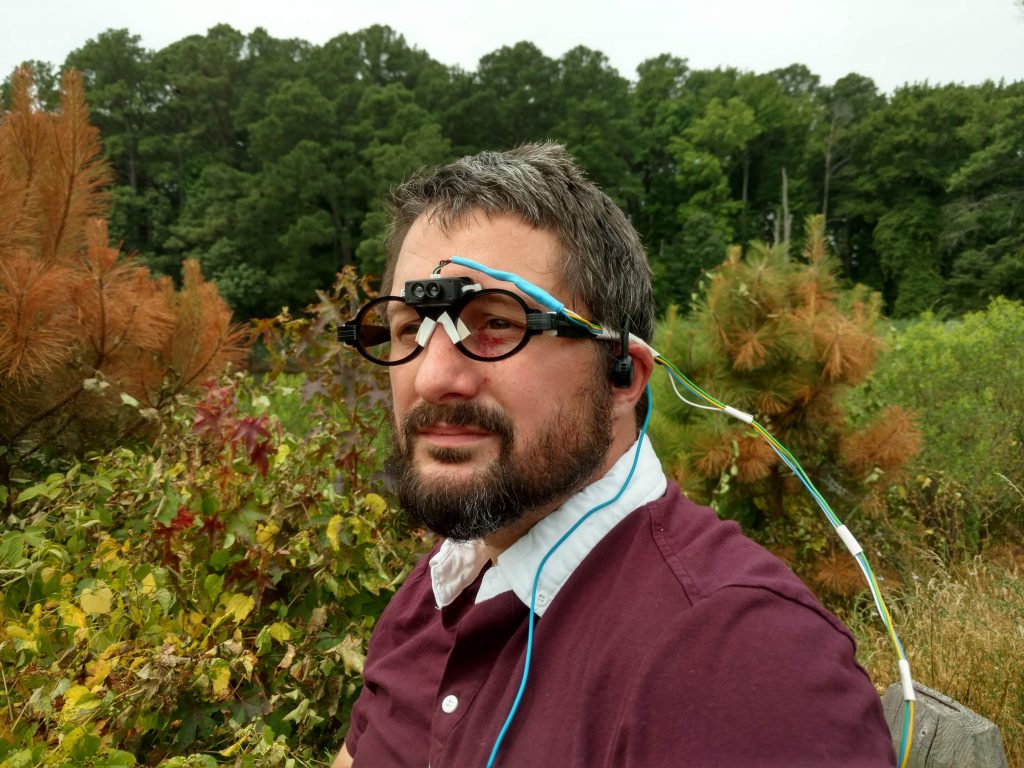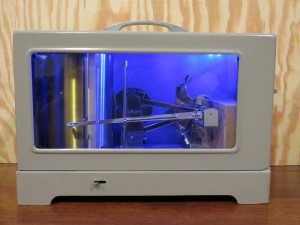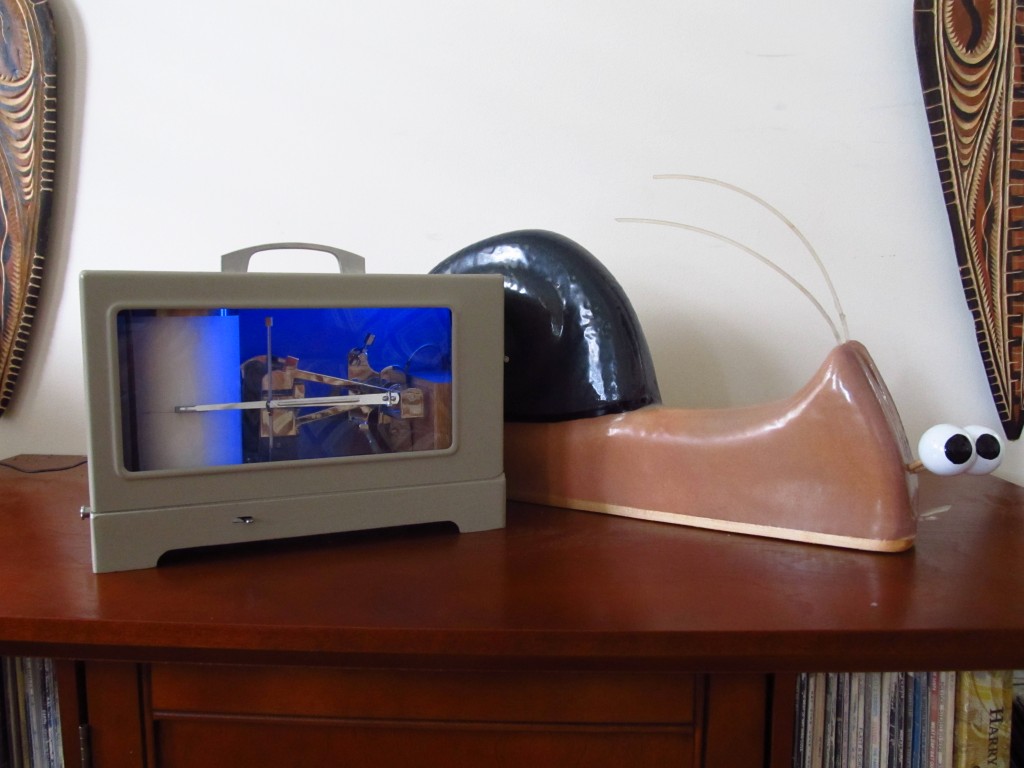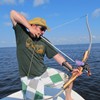I’m Andrew Thaler and I build weird things.
Last month, while traveling to Kuching for Make for the Planet Borneo, I had an idea for the next strange ocean education project: what if we could use bone-conducting headphones to “see” the world like a dolphin might through echolocation?

Bone-conducting headphones use speakers or tiny motors to send vibrations directly into the bone of you skull. This works surprisingly well for listening to music or amplifying voices without obstructing the ear. The first time you try it, it’s an odd experience. Though you hear the sound just fine, it doesn’t feel like it’s coming through your ears. Bone conduction has been used for a while now in hearing aids as well as military- and industrial-grade communications systems, but the tech has recently cropped up in sports headphones for people who want to listen to music and podcasts on a run without tuning out the rest of the world. Rather than anchoring to the skull, the sports headphones sit just in front of the ear, where your lower jaw meets your skull.
This is not entirely unlike how dolphins (and at least 65 species of toothed whales) detect sound.



